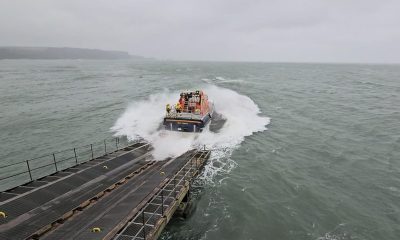News
National review urges reform of Welsh Fire and Rescue Authorities

A MAJOR new report has highlighted significant weaknesses in the governance of Wales’ Fire and Rescue Authorities (FRAs), calling for urgent action from the Welsh Government to address long-standing concerns. The Auditor General for Wales has criticised the current governance structures as lacking the necessary expertise and oversight required to manage the vital emergency services these authorities provide.
Fire and Rescue Authorities, which are responsible for fire-fighting, promoting fire safety, and responding to road traffic accidents, play a critical role in protecting Welsh communities. However, the Auditor General’s review warns that the system designed to govern these authorities is not fit for purpose, raising concerns over accountability and effectiveness.
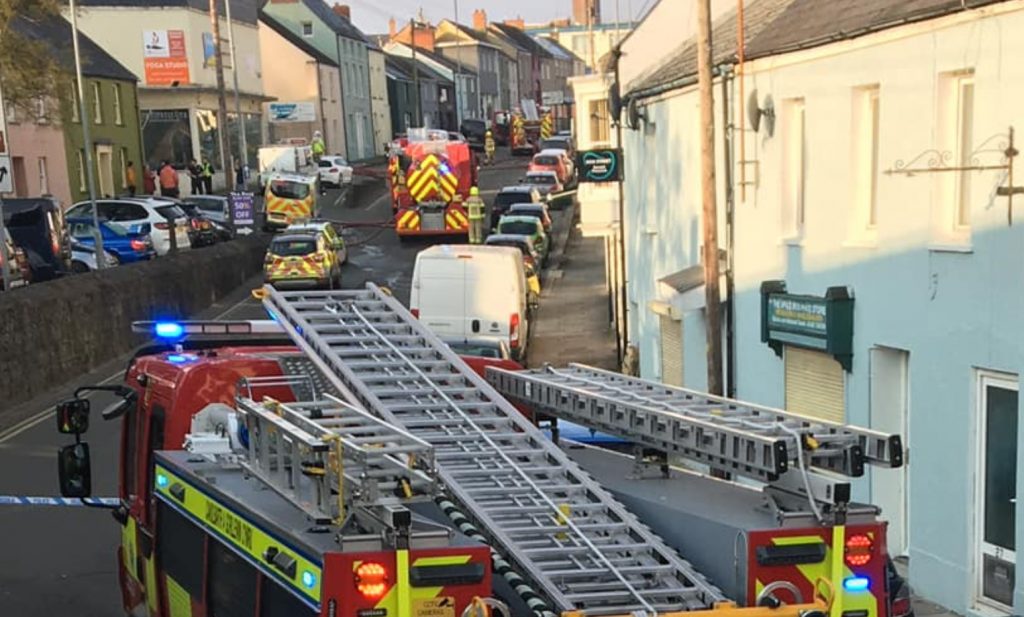
What do councillors know about fire fighting?
One of the key findings of the report is that the current governance model for FRAs, which relies exclusively on councillors nominated by their local authorities, is not aligned with the specialist nature of fire and rescue services. Members of FRAs are drawn from local councils, often with little or no prior experience in fire and rescue, meaning they lack the technical knowledge required to make informed decisions on crucial public safety matters.
“Fire and Rescue Authorities provide vital services, and it’s important that they are governed in a manner reflecting the public and environment they serve,” said Adrian Crompton, the Auditor General for Wales. He urged the Welsh Government and the FRAs themselves to address these governance weaknesses and ensure that the people tasked with overseeing these services are properly equipped for the job.
The report highlights that while elected councillors provide important community representation, this does not guarantee the specific skills needed for governing such specialised services. As a result, there is a significant gap in knowledge and experience that poses a risk to the effective oversight of fire and rescue services across Wales.
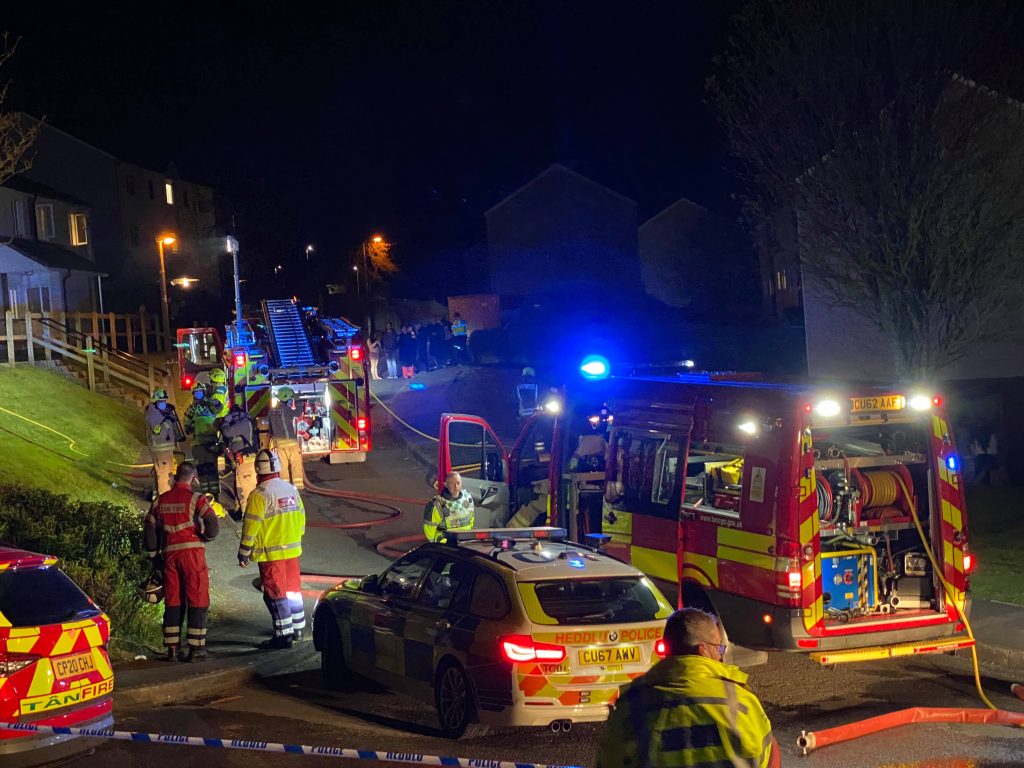
Limited training and short-termism of positions
The review also revealed that many FRA members do not receive sufficient training to help bridge this knowledge gap. Of the three FRAs in Wales—North Wales, South Wales, and Mid & West Wales—only the latter provides a structured programme of training and development for its members. Elsewhere, training is sporadic and not consistently aligned with members’ individual needs, leaving many unprepared for the responsibilities they face.
In addition, the high turnover of FRA members, with frequent changes in membership due to local elections, further complicates the situation. The report found that this constant churn of councillors prevents the development of long-term expertise within the FRAs, making it difficult to maintain a knowledgeable and engaged governing body.
“Governance requires stability, expertise, and a clear understanding of roles and responsibilities,” the report states. However, the review found that in practice, many members did not demonstrate a clear understanding of their governance duties, further weakening the effectiveness of decision-making processes.
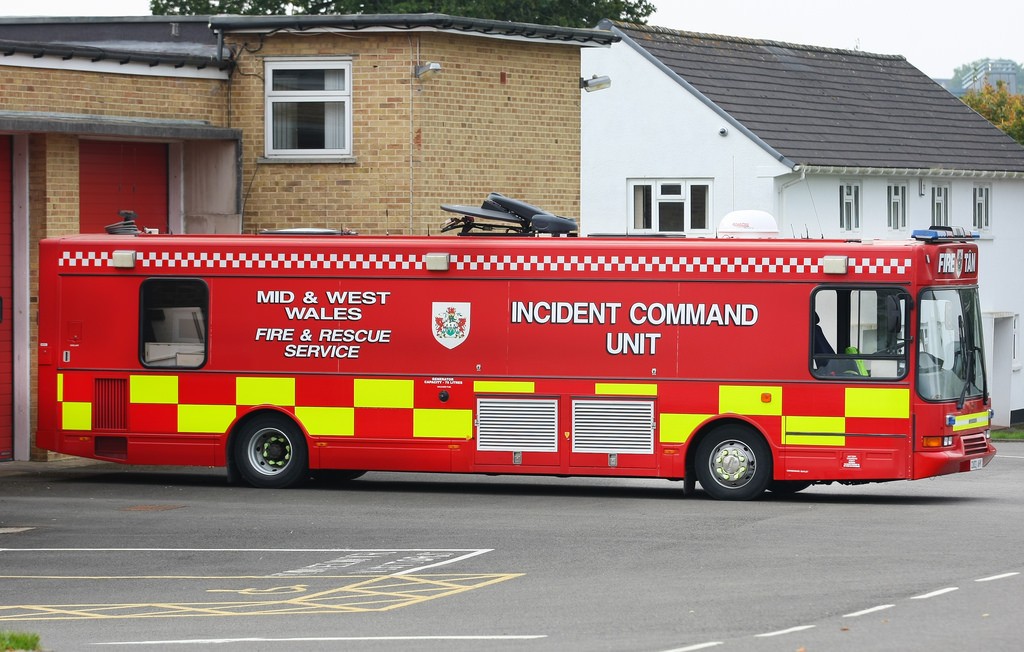
Lack of scrutiny and accountability
Another significant concern raised in the report is the lack of rigorous scrutiny and challenge within FRA governance structures. The review found that in many committee meetings, there was minimal questioning or discussion on important matters, including strategic risk management and performance oversight. This raises fears that decisions are being made without sufficient scrutiny, potentially putting public safety at risk.
The Auditor General also expressed concerns over the lack of diversity among FRA members, with the majority being male and few representatives from ethnic minority backgrounds. This lack of diversity, the report argues, reduces the ability of FRAs to reflect the communities they serve and engage with a broad range of perspectives on public safety issues.
The report further criticises the absence of regular evaluations of individual FRA members’ contributions, meaning there is no mechanism to assess whether members are fulfilling their roles effectively. This, coupled with the lack of structured training, results in a governance system that is not fully accountable to the public.

Urgent calls for reform
This is not the first time Welsh FRAs have faced calls for reform. In 2018, the Welsh Government’s White Paper on FRA governance recommended reducing the number of elected councillors in favour of appointing non-executive members with specialist expertise in fire and rescue. However, these proposals were never implemented, leaving the current governance structures largely unchanged.
The Auditor General’s report echoes these earlier recommendations, urging the Welsh Government to revisit its governance model. It calls for a membership structure that better reflects the technical and operational demands of fire and rescue services, ensuring that those tasked with overseeing these services have the necessary skills and knowledge.
In particular, the report recommends that the Welsh Government conduct a comprehensive review of FRA governance to introduce clearer accountability mechanisms and improve the training and development available to members. This would include regular assessments of members’ skills and contributions, as well as a more formal approach to succession planning within the FRAs.
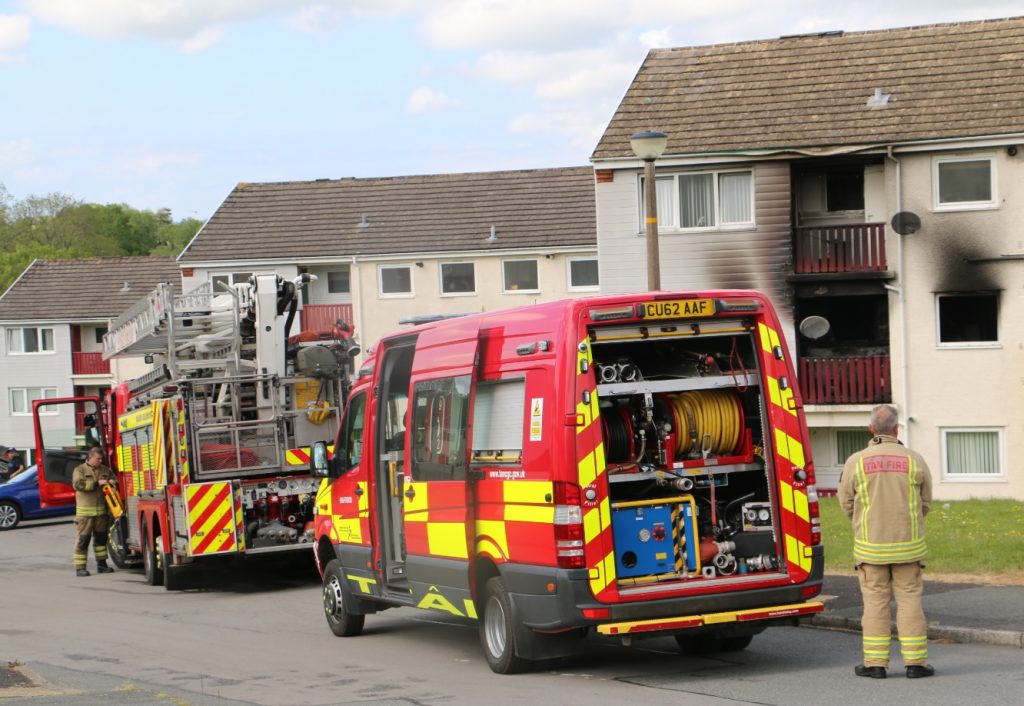
Financial pressures not helping
The need for reform is made all the more urgent by the financial pressures facing the public sector. The combined budget of the three Welsh FRAs for 2024-25 is approximately £200 million, equating to £64 per head of the population. With such significant sums of money at stake, ensuring these funds are managed effectively is crucial, particularly in the current economic climate.
The report warns that the lack of robust governance could undermine the ability of FRAs to deliver value for money, with public safety potentially being compromised as a result. It emphasises that strong governance is essential for effective decision-making and the delivery of high-quality services, particularly in times of financial austerity.
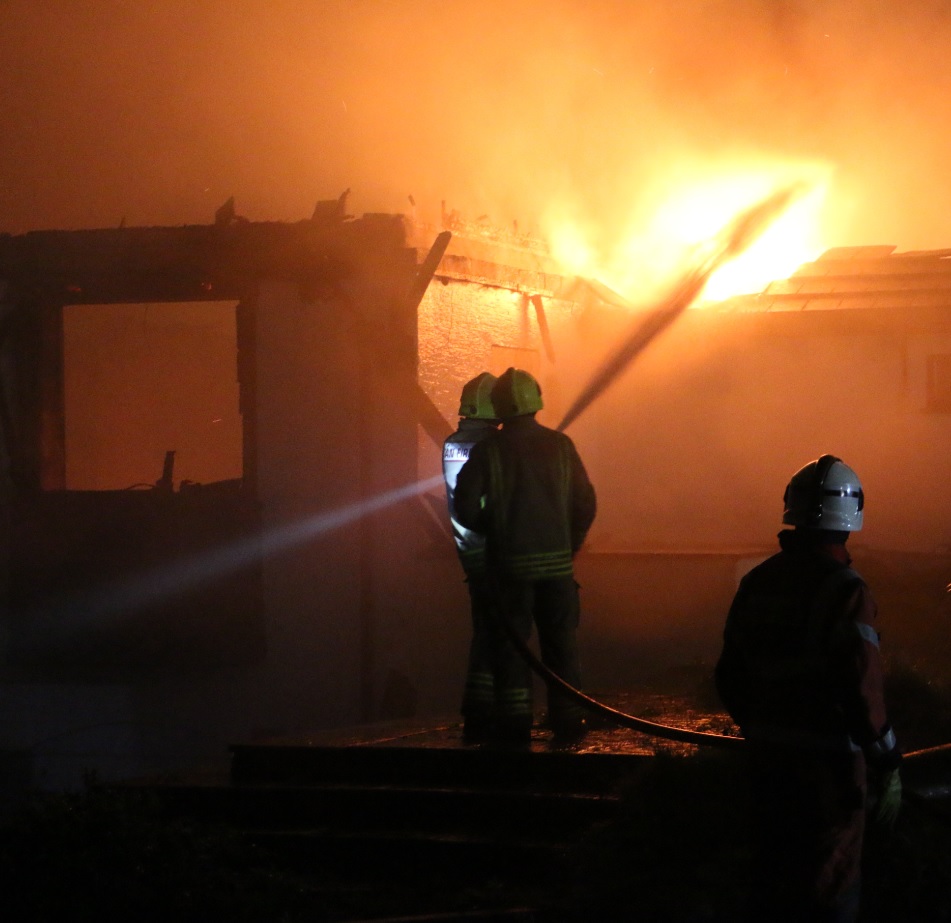
A long road ahead
The findings of the Auditor General’s review have put the Welsh Government under pressure to act swiftly. The issues identified are not new, but the report makes clear that the need for change is more pressing than ever. As public sector budgets tighten, and the complexity of fire and rescue services increases, the risks posed by inadequate governance structures could have serious consequences for communities across Wales.
Whether the Welsh Government will heed the Auditor General’s call for reform remains to be seen. However, the message from the report is clear: without action, the governance of Wales’ Fire and Rescue Authorities will continue to fall short of what is required to keep the public safe and ensure effective management of these essential services.
In the meantime, the public will be watching closely to see if the necessary reforms are put in place to address the serious issues raised in the report and ensure that Wales’ Fire and Rescue Authorities are governed with the expertise and accountability they deserve.
Responding, Joel James MS, Shadow Minister for Social Partnership, said: “It’s vital that those who form FRAs have the necessary skills and knowledge to maintain a high standard of service management.
“We’d encourage the Welsh Government to be led by this report and ensure that expertise can be retained in fire service governance.”
Community
St David’s Day parade brings colour and celebration to Haverfordwest

HAVERFORDWEST town centre was a hive of activity today (Friday, Feb 27) as hundreds of children from schools across Pembrokeshire took part in a special St David’s Day celebration.
The popular parade, organised by the Pembrokeshire Language Forum, returned to the county town once again, with smiles all round from participants and spectators who lined the streets to watch.
Children paraded down High Street, through Bridge Street and along Quay Street, led by Samba Doc, before gathering at Picton Playing Fields for songs and dancing during an open-air jamboree with entertainer Tomos Tanllyd.
Pembrokeshire County Council Leader Cllr Jon Harvey said: “St David’s Day is always a special occasion in Pembrokeshire, and it was wonderful to see so many young people coming together to celebrate our language, culture and national identity.”
Cabinet Member for Education and the Welsh Language, Cllr Guy Woodham added: “The annual St David’s Day parade is a shining example of what schools in Pembrokeshire do to celebrate the Welsh language and culture, and they are certainly enthusiastic about it.”
Council Vice Chairman and Champion for the Welsh Language and Children and Young People, Cllr Delme Harries said: “It was fantastic to see such enthusiasm from pupils across the county, proudly celebrating St David’s Day.”
Local member Cllr Tom Tudor also praised the event, adding: “It really was a great celebration of St David’s Day and a highlight for Haverfordwest.”
Welsh Language Development Officer Catrin Phillips said the event continues to grow each year.
She said: “The St David’s Day parade, organised by the Pembrokeshire Language Forum, is always a highlight of the year and it’s wonderful to bring schools together to celebrate Welsh language and culture in such a joyful way.
“It has been especially encouraging to see new schools joining us this year, helping the event continue to grow.”
Crime
Axe gang stormed home as couple feared they would be killed, court hears

Five masked men smashed their way into property during terrifying late-night raid
A COUPLE feared they were about to be murdered when a masked gang armed with axes burst into their home, a jury at Swansea Crown Court has heard.
Five men dressed in dark clothing and balaclavas forced entry to the property shortly before 9:00pm on May 29, 2021, in what prosecutors say was a planned aggravated burglary. An emergency call was made at 8:51pm.
Prosecutor Mr Wright read to jurors a police statement from homeowner David Davies, who said he had been sitting with his partner, Carmen Bailey, when he heard loud banging at the front door.
“As I got to the entrance, the glass in the door was smashed and the men came through,” he said.
He described five intruders, all carrying axes. One of the men shouted: “Lay face down on the floor.”
Moments later, another voice yelled: “She’s on the phone,” after Ms Bailey contacted police. A further shout of “Let’s go boys” was then heard before the gang fled.
Mr Davies told officers that drawers throughout the property had been opened. Around £3,000 hidden in a spare room was not discovered, but two £50 notes were stolen along with a sanitary item and a Lloyds Bank paying-in book.
He attempted to follow the men as they left and saw the rear of a white SUV. Although his mobile phone had been smashed, it was still functioning.
In a later statement he described one suspect carrying a yellow-and-black rubber-handled axe, adding that another man “hopped out like a kangaroo” as he entered the property.
Ms Bailey said she was left utterly traumatised by the ordeal.
“I was absolutely petrified,” she said. “I felt like I was going to get murdered.”
She told police she could only see the men’s eyes through their balaclavas as she grabbed the house phone and called emergency services. A male voice shouted: “Where’s the money?”
The force of the attack shattered glass up to two metres into the hallway, the court heard.
A third witness, Doreen Jones, said she had phoned Mr Davies during the incident and heard male voices shouting: “Get down, get down.”
The investigation
Jurors were told that a white Nissan Juke — stolen in the Manchester area and fitted with cloned number plates — was later recovered near Paradise Nightclub in Pontardawe after the registration plates had been removed.
Several other men have already pleaded guilty to aggravated burglary, but Mohammed Mills and Michael Quinn deny involvement.
When Mills was arrested, officers recovered £235 in cash and a black iPhone. A vehicle linked to him was searched, leading to the discovery of a machete with an orange handle, black gloves and a balaclava.
Quinn was arrested in November 2021. Officers recovered a gold iPhone and a machete, while a large knife was found under his bed at home. A Nokia handset seized from him contained very little data, most of which had been deleted.
Automatic number plate recognition (ANPR) cameras placed vehicles linked to the defendants in the Bryncethin area at 6:40pm. Both vehicles were later seen at McDonald’s in Morriston at 7:35pm and at a Tesco service station at 8:32pm — around twenty minutes before the burglary.
There is no CCTV footage of the break-in itself.
The prosecution case
The prosecution allege the burglary was carefully planned, including what they describe as a “dry run” the previous day. They say the vehicles travelled together from Manchester and that the meeting in the area had been pre-arranged.
Jurors were told telecommunications evidence, including phone activity and satnav data, places devices linked to the defendants in relevant locations.
The defence
Mills claims he had recently started taxi work and was paid to drive men to Wales, saying he did not know their intentions. He denies wearing a balaclava and says the machete recovered was not his. His barrister told the court he cooperated fully with police and provided access to his phone.
Quinn maintains he travelled to Wales to sell his Vauxhall Insignia and denies any knowledge of the burglary. He says the knife found under his bed was used for dismantling furniture.
The judge reminded jurors that emotion must play no part in their deliberations and that the verdict is theirs alone.
The trial continues.
News
NRW invites feedback on draft decision to issue Withyhedge landfill permit variation
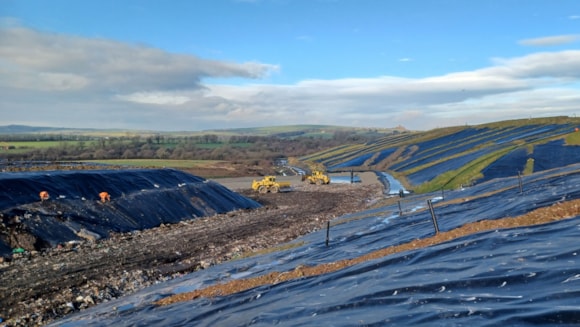
NATURAL RESOURCES WALES (NRW) is seeking public feedback after reaching a draft decision to approve changes to the environmental permit for the Withyhedge Landfill site in Pembrokeshire.
Following what it described as a detailed technical assessment, NRW said it is “minded to” grant a permit variation requested by the site operator, Resources Management UK Ltd. The variation would amend the environmental permit that controls how the site operates (permit number EPR/MP3330WP, application reference PAN-025929).
A four-week public consultation has now opened and will run until Thursday, March 26, 2026. NRW said all responses will be considered before any final decision is made.
The operator is proposing several changes, including alterations to the final shape of the land once the landfill is capped, updates to monitoring and management arrangements for groundwater, surface water and leachate, and the addition of up to 50,000 tonnes of waste soils for restoration purposes under a new waste recovery activity.
The application also includes consolidation and modernisation of the permit, including a review of existing improvement and pre-operational conditions.
NRW said it considers the proposed changes acceptable and believes they could help ensure the site operates without causing harm to the environment or nearby communities.
Residents are being encouraged to provide feedback on issues such as emissions, potential health impacts, environmental risks and how waste is managed at the site.
However, NRW stressed that certain matters fall outside its remit and cannot be considered as part of the consultation. These include planning issues handled by the local authority, such as the site’s location, traffic levels, visual impact, land use, access arrangements and operating hours.
Huwel Manley, Head of South West at Natural Resources Wales, said: “We know the community has a long-standing interest in what happens at Withyhedge Landfill, and we take that responsibility seriously.
“Given the history of the site and the concerns people have previously raised, we promised to take an approach that goes further than our usual consultation process for a permit variation.
“Being ‘minded to’ issue this variation means our specialists are satisfied the operator can meet the required standards, but before we make any final decision we want to hear from the people who live and work nearby. We encourage anyone with an interest in the site to take part in the consultation.”
Details of the draft decision and information on how to submit comments are available via NRW’s Consultation and Engagement Hub.
-

 Health7 days ago
Health7 days agoConcerns grow over Bronglais stroke plans as politicians demand clarity
-

 Local Government5 days ago
Local Government5 days agoCandidate who withdrew from Hakin race will still appear on ballot paper
-

 Crime5 days ago
Crime5 days agoBBC documentary reveals local man murdered mother then lived with her body
-

 Local Government6 days ago
Local Government6 days agoFirst Minister left red-faced as Labour candidate pulls out during Hakin campaign visit
-

 Entertainment7 days ago
Entertainment7 days agoNew theatre show explores realities of motherhood in Pembrokeshire
-

 Business7 days ago
Business7 days agoPembrokeshire businesses ‘squeezed to breaking point’ amid economic pressures
-

 Crime7 days ago
Crime7 days agoTeacher stabbed by pupil criticises school weapon scanner plans
-

 News7 days ago
News7 days agoThousands of potentially contaminated land sites recorded across Pembrokeshire






















